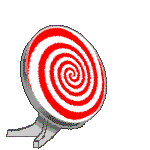|
A Brief History of Hypnosis & Related States
Hypnotic or suggestive therapy has been used as a healing technique since the beginning of history. References to it can be found in the Bible. It was of prime importance in the "sleep temples" of Ancient Greece which were places of pilgrimage and healing. In the Middle Ages belief in miraculous cures associated with religious shrines was widespread. Healing was brought about by touch and prayer. During the 18th Century the theory of "Magnetism" was developed. Franz Anton Mesmer argued that the planets influenced mankind through their magnetic effects on the "fluid" which occupied all space. He discovered that he could induce people into a trance like state and concluded that he himself must be a kind of magnet, hence the term "Animal Magnetism". This idea was soon discredited by a French Royal Commission which found that the magnetic fluids did not exist. James Braid reexamined Mesmerism in the 19th Century and reached similar conclusions. It was he who coined the term "Hypnosis" for the induction of a trance like state through simple suggestion. In the early part of the 20th Century hypnosis was used almost exclusively by stage hypnotists, thereby projecting a distorted view of the very powerful therapeutic tool. However, in 1955 the British Medical Association endorsed the practice of hypnosis in Medical School education, since then it has become a valuable addition to conventional medical treatment.
WHAT CONDITIONS CAN HYPNOSIS TREAT
Modern Hypnotherapists use hypnosis not only for medical purposes, but also as an aid for the resolution of many problems that are psychological in origin. It is estimated that approximately 85% of people of all age groups will readily respond to Clinical Hypnotherapy. It is often successful when other more conventional methods of treatment have failed. Listed below are some of the conditions for which hypnotherapy is indicated as a practical treatment: Breaking unwanted habits (e.g. smoking, nocturnal enuresis, nail biting, stuttering). Obtaining relief and often remission from symptoms such as: Asthma, Migraine, Gastro-intestinal and Neurological disorders. Dermatological conditions such as Eczma, Psoriasis, Neurodermatitis, Herpes Simplex, and even Warts. Pain control for minor Surgery, Dentistry, Arthritis, and general Neuromuscular aches and pains. Hypnosis can free people from Phobias, Compulsions, Emotional Problems, Insomnia, Inhibitions, Guilt Feelings, Jealousy, and many of the worries and anxieties of everyday life. The use of Self-Hypnosis will help prevent stress and tensions caused by modern day living, reduce high blood pressure and the risk of Cardiovascular disease. Hypnotherapy for effective Weight-Control, increasing Work - Study - Sporting Performance, improving Concentration and Memory, developing the Imagination, boosting Self-Confidence, and achieving more of the potential which we all possess.
NEURO LINGUISTIC PROGRAMMING (NLP)
Neuro Linguistic Programming (NLP) is a model of communication that focuses on identifying and using patterns of thought that influence a person's behaviour as a means of improving the quality and effectiveness of their lives. It offers a paradigm of how the brain works (neuro), about how language interacts with the brain (linguistic), and how we use this interaction to get the results we want for ourselves and others (programming). It is an effective, proven vehicle for accelerated human change, radically altering the "old way" of lengthy psychotherapy. NLP was initially created by linguist Dr. John Grinder and computer scientist and Gestalt therapist Dr. Richard Bandler. Together they produced a linguistic model that identified the language patterns of a few gifted individuals such as hypnotherapist Milton Erickson, MD., Fritz Perls of Gestalt therapy, anthropologist Gregory Bateson and Virginia Satir of family systems therapy. The synthesis of their findings, a blend of cognitive and behavioural science, resulted in the technology known as Neuro Linguistic Programming. In the 20+ years since it was first developed, NLP has grown, changed and expanded, and it continues to do so today.
TIME LINE THERAPY
Time Line Therapy is an extremely effective integration of Hypnosis and NLP, which is used to release past negative emotion. By releasing this, clients are able to choose to live happier and more productive lives.
|


